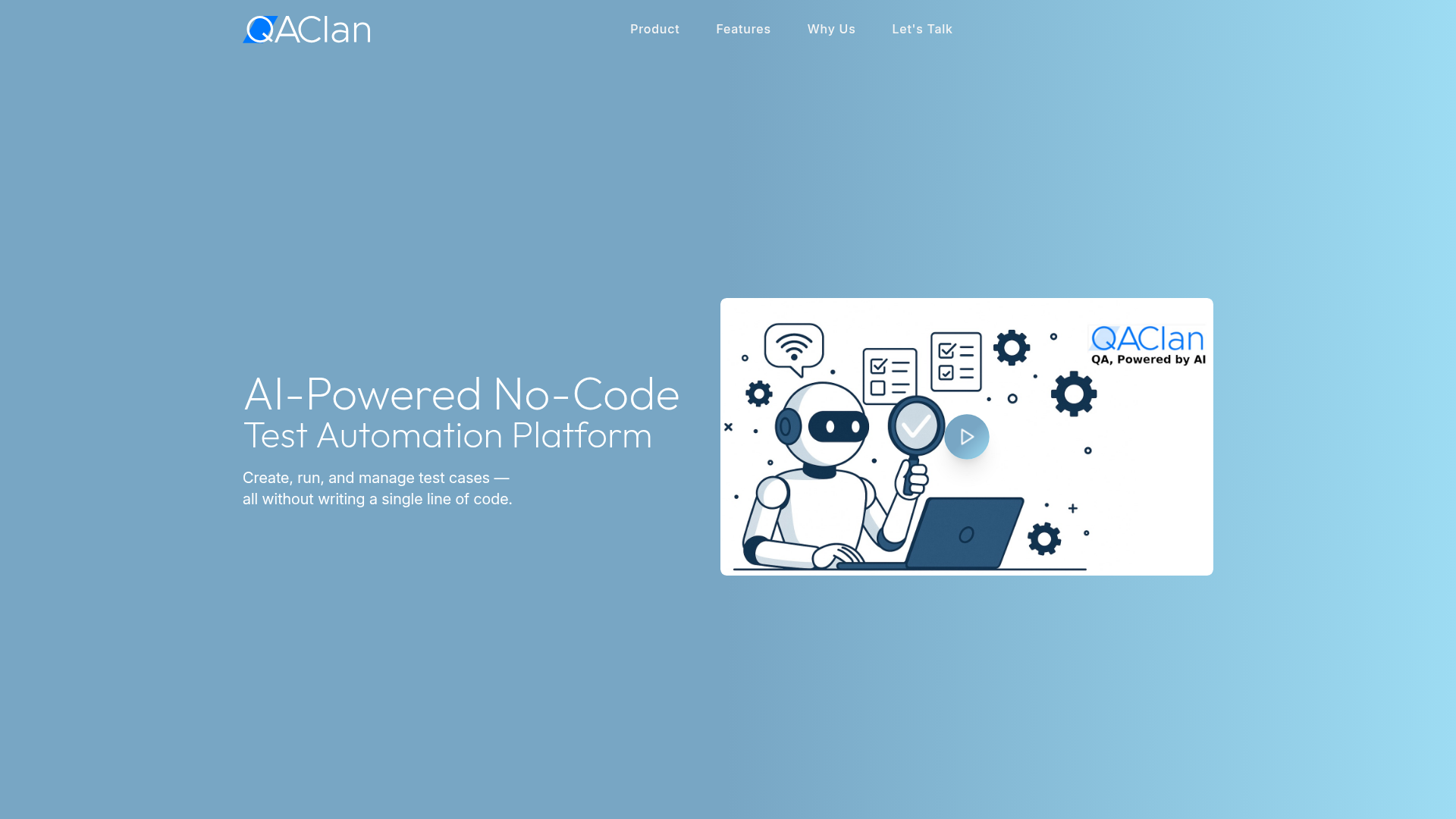QAClan
| Introduction: | QAClan is an AI-powered no-code test automation platform that allows teams to create, run, and manage test cases without writing any code. |
| Recorded in: | 6/9/2025 |
| Links: |

What is QAClan?
QAClan is an AI-powered No-Code Test Automation Platform that revolutionizes the way QA teams approach software testing. Designed to eliminate manual effort and reduce testing cycles, QAClan empowers teams to deliver high-quality applications faster and more efficiently. With intelligent automation, seamless integrations, and support across the entire testing lifecycle, QAClan helps you scale your testing efforts effortlessly—without writing a single line of code. Whether you're validating web interfaces, ensuring API reliability, or preparing your systems for peak performance, QAClan brings speed, precision, and simplicity to every release.
How to use QAClan
Users interact with QAClan through an intuitive no-code interface, allowing them to create, run, and manage test cases without writing any code. This involves importing user stories from third-party tools or recording web test cases manually. Tests can then be generated using generative AI or executed with AI and vision-based logic across different browsers. Users can schedule test runs, receive email notifications on failures, and integrate the platform with existing CI/CD pipelines. The platform is designed for testers of all skill levels, requiring no development expertise. Specific registration steps or pricing models are not detailed in the provided content.
QAClan's core features
Web, API, and Stress Testing Capabilities
AI-Based Test Case Management
User Stories Import from Third-Party Tools
Generative AI for Test Case Generation
No-Code Web Test Case Recording and Execution
AI + Vision-Based Test Execution
Robust Assertion System
Scheduled Test Case Execution
CI/CD Integration
Detailed Reporting and Email Notifications
Use cases of QAClan
Automating web interface validation without writing code.
Ensuring the reliability and performance of APIs.
Conducting stress tests to prepare systems for high loads.
Accelerating software release cycles by reducing manual testing effort.
Scaling QA operations efficiently across large projects or teams.
Empowering non-technical QA team members to create and manage tests.
Integrating automated tests seamlessly into CI/CD pipelines for continuous delivery.
Generating test cases automatically from user stories using AI.
Receiving instant notifications on test failures to quickly address bugs.
Gaining actionable insights into test execution with detailed reports.